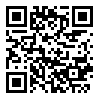Fri, May 3, 2024
[Archive]
Volume 6, Issue 2 (Vol.6 No.2 Apr 2018)
rbmb.net 2018, 6(2): 151-157 |
Back to browse issues page
Download citation:
BibTeX | RIS | EndNote | Medlars | ProCite | Reference Manager | RefWorks
Send citation to:



BibTeX | RIS | EndNote | Medlars | ProCite | Reference Manager | RefWorks
Send citation to:
Asgari F, Falak R, Teimourian S, Pourakbari B, Ebrahimnezhad S, Shekarabi M. Effects of Oral Probiotic Feeding on Toll-Like Receptor Gene Expression of the Chicken’s Cecal Tonsil. rbmb.net 2018; 6 (2) :151-157
URL: http://rbmb.net/article-1-158-en.html
URL: http://rbmb.net/article-1-158-en.html
Fatemeh Asgari 
 , Reza Falak
, Reza Falak 
 , Shahram Teimourian
, Shahram Teimourian 
 , Babak Pourakbari
, Babak Pourakbari 
 , Salimeh Ebrahimnezhad
, Salimeh Ebrahimnezhad 
 , Mehdi Shekarabi *
, Mehdi Shekarabi * 


 , Reza Falak
, Reza Falak 
 , Shahram Teimourian
, Shahram Teimourian 
 , Babak Pourakbari
, Babak Pourakbari 
 , Salimeh Ebrahimnezhad
, Salimeh Ebrahimnezhad 
 , Mehdi Shekarabi *
, Mehdi Shekarabi * 

Immunology Research Center, Iran University of Medical Sciences, Tehran, Iran-Department of Immunology, School of Medicine, Iran University of Medical Sciences, Tehran, Iran.
Abstract: (6212 Views)
Background: It was proposed that probiotics may influence immune system through direct or indirect exposure. Direct exposure is mostly mediated by surface receptors. Toll-like receptors (TLRs) are conserved molecular sensors which could be triggered via some pathogen associated structures, hence, modulate the immune responses. This study was conducted to elucidate the impact of lactobacillus acidophilus as a common probiotic on the expression level of TLRs in the chicken’s cecal tonsil.
Methods: Thirty one-day-old chicken were selected and separated into three groups as probiotic-fed, dairy-fed and control. In addition to commercial powder supply, each chicken in the probiotic-fed group received 109 CFU/Kg of L. acidophilus daily. While, chickens in the dairy-fed group were provided with commercial powder feed and sterile dairy milk. After 14 and 21 days of oral feeding the cecal tonsil was removed and the expression of TLR2, TLR4 and TLR5 were examined by real-time PCR.
Results: At the age of 14-day, there was a slight upregulation in the expression levels of TLR2 (118.9%), TLR4 (129.6%) and TLR5 (123.7%) of the cecal tonsil in the probiotic-fed group; however, these alterations were not statistically significant. At the age of 21-day, a non-significant downregulation was observed in TLR expression level of both dairy-fed (TLR2, 85%; TLR4, 79.5%; and TLR5, 86.5%) and probiotic-fed (TLR2, 88.8%; TLR4, 81%; and TLR5, 87.2%) groups in comparison to controls.
Conclusions: The findings revealed that although the probiotic supplementation could be useful but it did not significantly affect innate immunity state through alteration of TLRs.
Methods: Thirty one-day-old chicken were selected and separated into three groups as probiotic-fed, dairy-fed and control. In addition to commercial powder supply, each chicken in the probiotic-fed group received 109 CFU/Kg of L. acidophilus daily. While, chickens in the dairy-fed group were provided with commercial powder feed and sterile dairy milk. After 14 and 21 days of oral feeding the cecal tonsil was removed and the expression of TLR2, TLR4 and TLR5 were examined by real-time PCR.
Results: At the age of 14-day, there was a slight upregulation in the expression levels of TLR2 (118.9%), TLR4 (129.6%) and TLR5 (123.7%) of the cecal tonsil in the probiotic-fed group; however, these alterations were not statistically significant. At the age of 21-day, a non-significant downregulation was observed in TLR expression level of both dairy-fed (TLR2, 85%; TLR4, 79.5%; and TLR5, 86.5%) and probiotic-fed (TLR2, 88.8%; TLR4, 81%; and TLR5, 87.2%) groups in comparison to controls.
Conclusions: The findings revealed that although the probiotic supplementation could be useful but it did not significantly affect innate immunity state through alteration of TLRs.
Type of Article: Original Article |
Subject:
Immunology
Received: 2017/04/12 | Accepted: 2017/04/21 | Published: 2017/10/1
Received: 2017/04/12 | Accepted: 2017/04/21 | Published: 2017/10/1
Send email to the article author
| Rights and permissions | |
 |
This work is licensed under a Creative Commons Attribution-NonCommercial 4.0 International License. |


